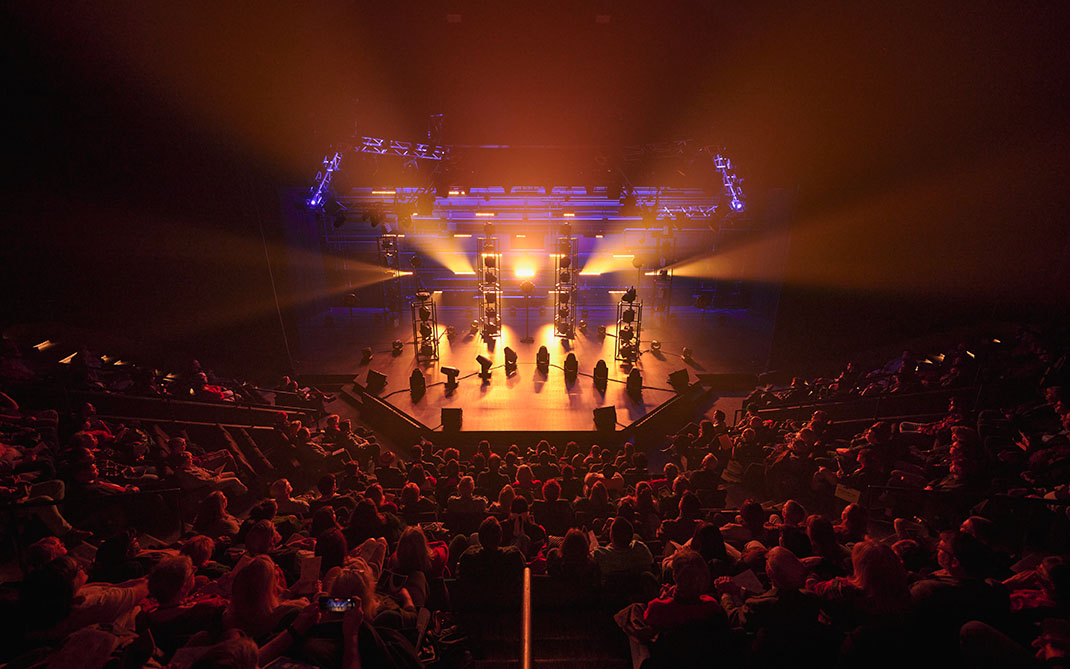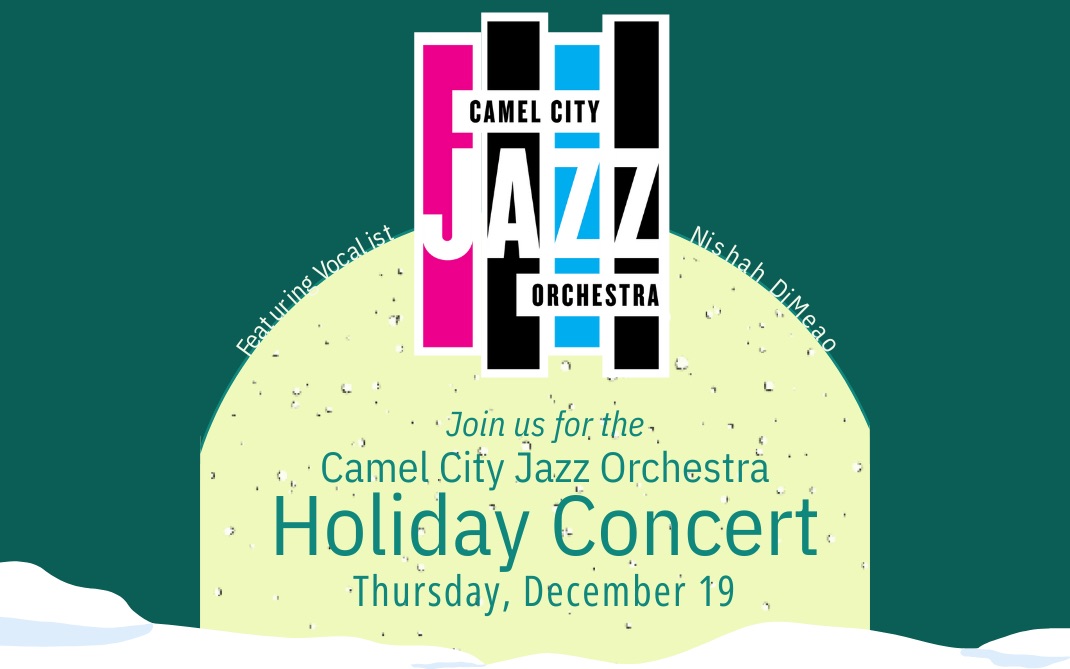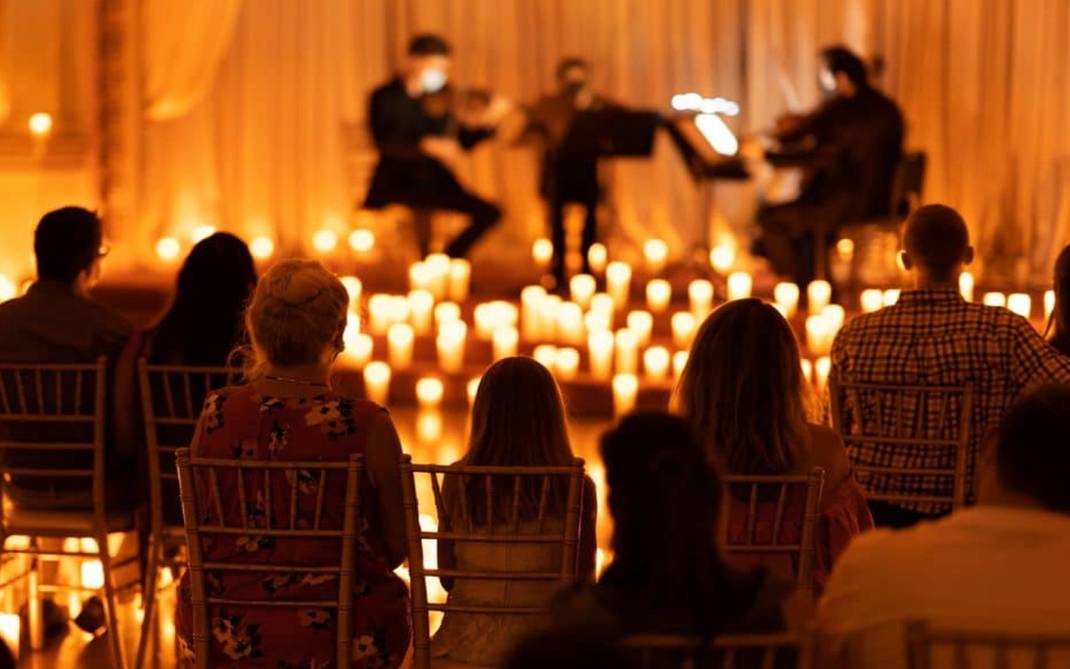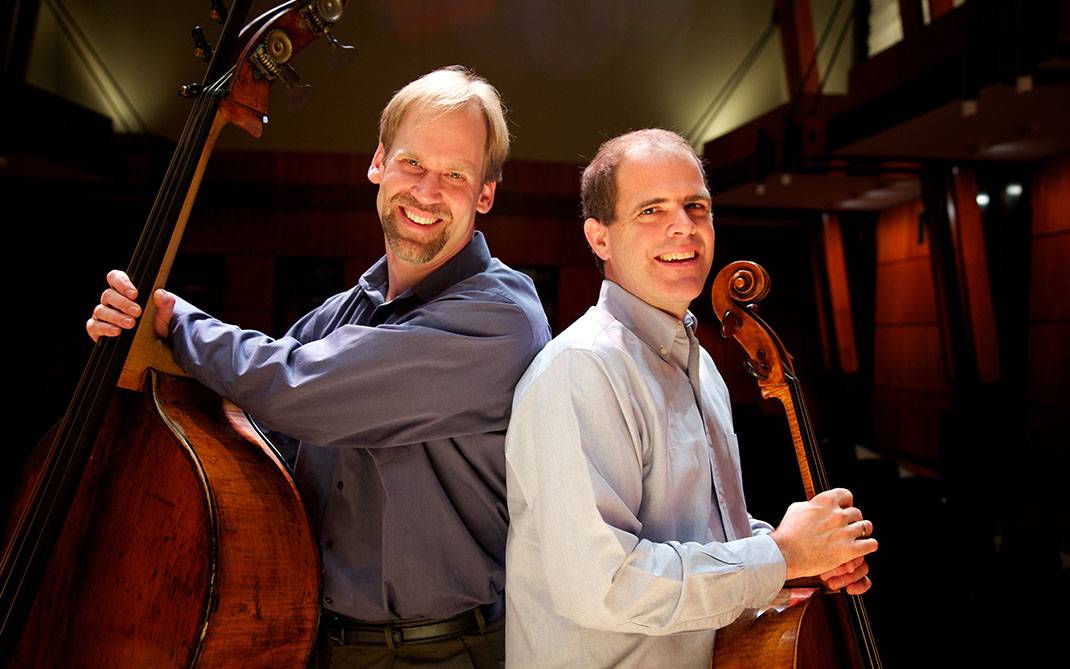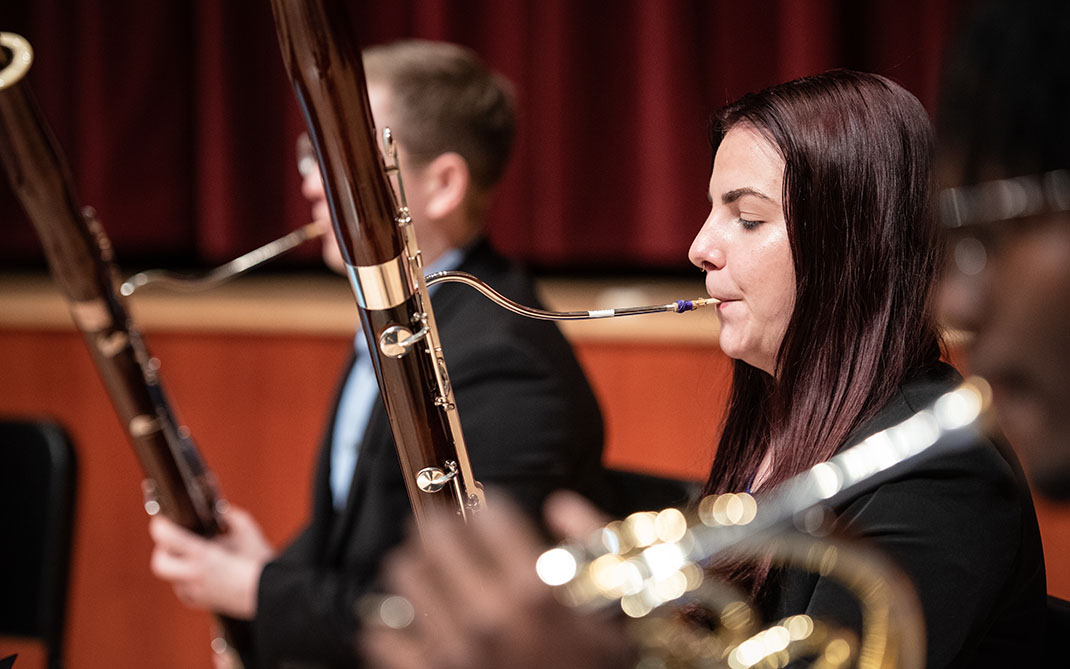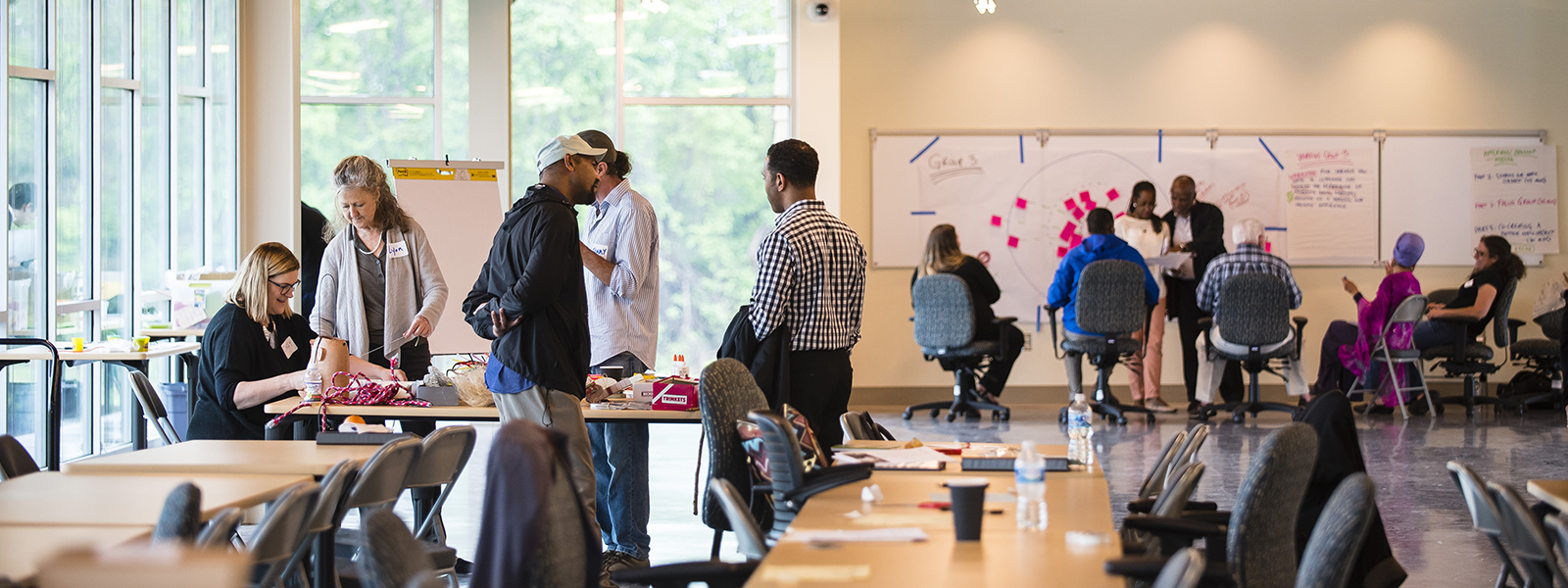Kenan Institute brings cutting-edge Community Innovation Labs to Winston-Salem
Disparities in employment, income and wealth in Winston Salem: Can the arts help address inequities that persist across race and class lines? The Thomas S. Kenan Institute for the Arts at UNC School of the Arts, along with two local partners, will experiment with a new approach that equips communities to address tough challenges using arts-integrated strategies.
After a competitive search that involved 92 inquiries from 71 communities, Winston-Salem was selected as one of only two cities in the nation to pilot a Community Innovation Lab — a framework developed by EmcArts of New York City with funding from the Kresge Foundation.
As conveners of the lab, The Kenan Institute, in partnership with The Winston-Salem Foundation and the Arts Council of Winston-Salem and Forsyth County, will identify 12 diverse “champions” each of whom have strong networks along with “revolutionary patience” to address complex challenges. Working together the champions will identify 25 diverse individuals to join them as members of a Community Innovation Lab. This coalition of 40 city officials, business and faith leaders, artists, academics, low-wage workers and others will begin to address formidable local disparities using a change process that is deeply informed by artists and artistic practices.
COMMUNITY INNOVATION LABS PHOTO ESSAY
Where it all started
When Corey Madden became Executive Director of the Kenan Institute in 2013, fostering arts innovation was among her top goals. “As an artistic leader at the Music Center of Los Angeles, I saw how changing economics, demographics and technology had disrupted the performing arts’ business model,” she says. “I was aware that EmcArts, through its Innovation Labs, was helping arts organizations reinvent their missions, strategies and programming through adaptive change processes.”
When a press release about a new EmcArts pilot program came across Madden’s desk, she invited president Richard Evans to visit Winston-Salem and hear more about the work of the Kenan Institute for the Arts.
“I told Richard that the Institute was interested in supporting arts-based community development,” she says, “and that I thought Winston Salem was particularly well-positioned to engage in this work because of its strong arts community.”
Madden brought about a dozen local civic and arts leaders together to meet with Evans and learn about the Community Innovation Lab pilot. “Everyone in the room was moved by the idea that the arts could help bring people together to make a difference,” she recalls.
In subsequent planning meetings, dozens of stakeholders collaborated to shape the city’s application. “The EmcArts process,” Madden says, “motivates diverse community members to openly discuss complex problems; and we developed a willingness to acknowledge issues that are much bigger than any one of us.” Together the group reached a consensus that the most urgent issue facing the community was that, despite concerted efforts to transform Winston Salem’s economy, significant economic disparity persists along race and class lines.
Madden reflects, “I was really impressed that the group believed that an arts-based approach might be able to unlock important new ways of thinking about how we can tackle such big social challenges.”
Why Winston-Salem?
Indeed, the scale of the issue that Winston-Salem chose to tackle is a key reason the city won the grant, according to Karina Mangu-Ward, director of activating innovation with EmcArts. Another reason: the strength of the convening partners in the project.
“This is a process about bringing networks together. With Kenan Institute, the Winston-Salem Foundation and the Arts Council, we have three strong conveners with a wide reach in the community and a strong set of relationships already there,” Mangu-Ward explains.
“The other reason is that the group chose a big, complex, ambitious question; one that many, many other communities are also struggling with. It is the question in America right now.”
Madden is optimistic that Winston-Salem is up for the challenge.
“Winston-Salem is a very high-functioning city with an incredible community of leaders dedicated to working on these issues,” she says. “They’ve embrace the idea that our long term prosperity depends on developing a more equitable economy — and art and innovation go hand-in-hand to help produce that.”
Coming to the table
The promise of artful innovation drew the Rev. Prince Rivers, senior minister at United Metropolitan Missionary Baptist Church in Winston-Salem, to join the Lab team.
“If you want to solve some of the problems we are facing today, you are going to have to do things we haven’t done before,” Rivers says. “I was glad to see it wasn’t the same old approach to strategic planning. This was, let’s think outside conventional ways of problem-solving. Let’s think about bringing people to the table who are not normally at the table and see how we might create a different dynamic, a different result than we’ve seen in the past.”
Both Rivers and Derwin Montgomery, the executive director of Bethesda Center and a member of the Winston-Salem City Council, have gained deep insight through their work into the inequities so many in Winston-Salem face every day.
Rivers explains: “This is so much of what I confront as a pastor — thinking about how resources of the congregation and of the community can be aligned in a way so that their talents can be more fully utilized, for their benefit and for the good of the whole community.”
When Montgomery received an invitation to a meeting about the project planned for September 10, he was scheduled to be out of town that day.
“I changed my plans so that I could be present because I felt it was very important,” Montgomery recalls. “This is a long overdue conversation in our community.”
Bethesda provides shelter and support services to the chronically homeless. “From opportunities in education to housing, careers or jobs,” he says, “it is a question of how do we address the inequities and do so in a manner that respects what happened in the past but looks to the future.”
A desire to innovate also inspired Winston-Salem native Marty Marion to attend the Lab’s September meeting. A seasoned local architect, Marion is trained to seek out creative solutions.
Time and again, the arts have proven to be an economic boost for Winston-Salem, Marion points out. “We know the arts can be profitable and can help develop people in terms of their economic situation,” he says. “Why not look for ways to broadened the horizon to include more people?”
Marion was impressed with the diversity of people who turned out for the meeting — including painters, musicians, writers and actors from across the community.
Our society as a whole is better off if everybody is reaching a level of success, particularly economic success,” he says. “It is very hard to move forward and contribute if you are struggling to pay for housing and food, for the necessities and the basics.
Retired social worker Linda S. Collins agrees. She became interested in the Lab project because its goals seemed to align with a local group she works with called The Institute for Dismantling Racism.
“This is a community where you are either working on your second million or your second shift,” she says. “We used to have a middle class and an opportunity for people to make changes if they wanted to in their life. But I don’t think the opportunities are the same anymore. The poor are getting poorer. We have to look at things in a different way.”
On a personal level, Collins said the arts helped change the attitudes she grew up with as a child. “Reading things, experiencing things, made a difference in my own life. I was brought up in a very conservative family — quite frankly, a racist family — so I had to go a long way. The arts changed a lot of my thinking. If the arts can affect me, it might can affect others in this town.”
The path to success
Michael Rohd, a national leader in civic engagement and the arts, helped facilitate the meetings in September. As the founding artistic director of Sojourn Theatre in Portland, Oregon, he works on original performances often connected to community engagement and social issues. Five years ago, Rohd founded the Center for Performance and Civic Practice, a national resource for artists and communities working together to build civic health and capacity.
“My goals were to bring some artistic practice into the day’s activities, and to open up and share a conversation about how artistic practice is being used in different community contexts,” Rohd says.
Like Mangu-Ward, Rohd feels the core issue Winston-Salem has chosen to explore is “the quintessential issue of America today.”
“That day, I felt like I was taking part in a conversation that is happening all over the country,” he explains. “I was in the room with a group of people who actively want to be wrestling with these issues. And through the process, the participants found they were ready to dig in and really acknowledge this is important for our community.”
Among the keys to ensuring the Lab is successful, Rohd believes, is engaging a diverse coalition of residents who stay involved for the long haul. That means finding a balance between lab members with positional power and authority, those with influence and trust, and those who are affected by the problem.
In order to talk about inequities in a community, we can’t just engage people with power and influence, but people who are impacted daily by those issues,” he says. “These individuals need to be in that conversation as active participants sharing stories and strategies and building networks.
Montgomery, too, believes diversity of participation is critical to success. “I do not believe in saviors coming into our community saying, ‘We are here to save you,’ “ he says. “The individuals who live it every day must be a part of the dialogue. It works when the people in the community come together themselves and they are part of answering these questions.”
Rohd believes other key factors for success include developing strong local networks that become rooted in the community and leaders who are committed to sustainable practices. It’s also vital to connect with the significant community-development efforts already embedded in Winston-Salem while providing space for new discoveries.
“I don’t think anyone would ever claim that a single effort could solve the problems of inequity in communities. Our task is to ask what kind of solutions might be developed collaboratively, to dig into structural and systemic issues, and to become a part of the larger movement in this community working toward positive change” he says. “The truth is that there are already a lot of people in Winston-Salem doing powerful and meaningful work, and we hope to connect with that and help move it forward.
Indeed, Mangu-Ward says, the Lab really isn’t about “solving” the problem at hand. “It’s about bringing people together to use a set of tools they haven’t had available to them before. We hope to make significant progress,” she says, “but it’s a fight that never ends.”
What lies ahead
For those involved in the Lab thus far, including Madden, Rivers and Montgomery, that fight has just begun.
Over the last couple of weeks these “champions” have spent hours developing a list of potential Lab members to approach. In early November, and again in December, 40 individuals from across Winston-Salem will spend four days together digging into the issues in order to come up with innovative solutions.
Madden hopes that “coming out of the first phase of this process we will come up with two to three big ideas about how we can collectively and creatively tackle inequity.”
The second phase of the Lab, scheduled to begin in 2016, would provide funding to actively work on these experiments for a year or more. “We have our fingers and toes crossed that Kresge will fund us for Phase Two,” says Madden.
Rivers is committed to seeing the project through. “I don't know that we’ll get to the point where we are finished working on it,” he says. “But I do think it is possible to educate and inform, and make people aware of the current reality, and help to chart a path toward a new reality. I think you have to get people at the table so they understand what role they can play in making this community a healthier place for everyone.”
For Montgomery, follow through and action are as important as the process itself.
“For too long in our community, we have had conversations, but that’s where we stop, with the conversation,” he says. “Where is the follow up in terms of accountability and how do we test it? The time is now to dig deep into these questions; and at the end of all this, action is necessary.
“Maybe there is no day we can wave a flag and claim a victory,” Montgomery adds, “but I hope we can look back and say people’s lives are better.”
